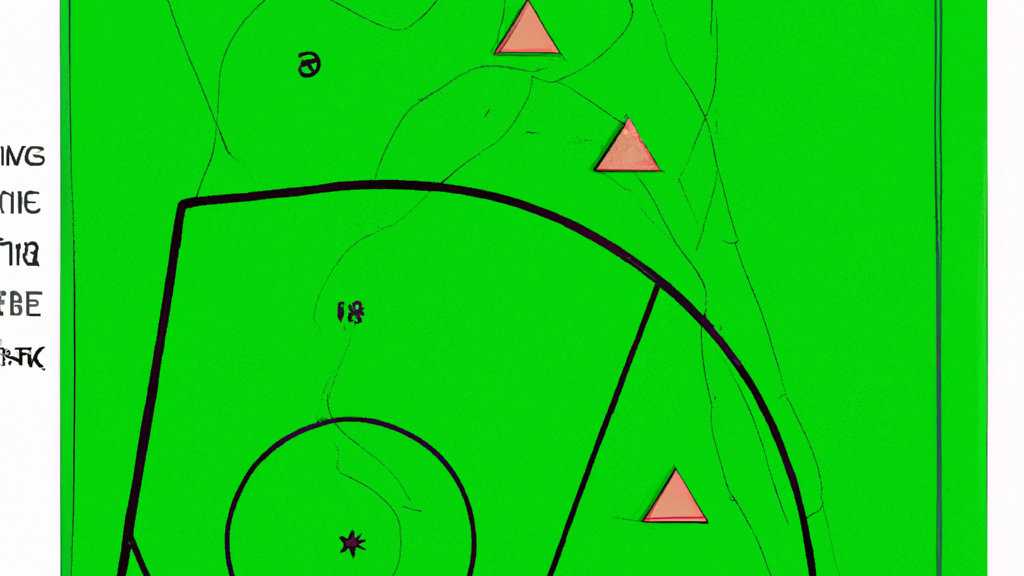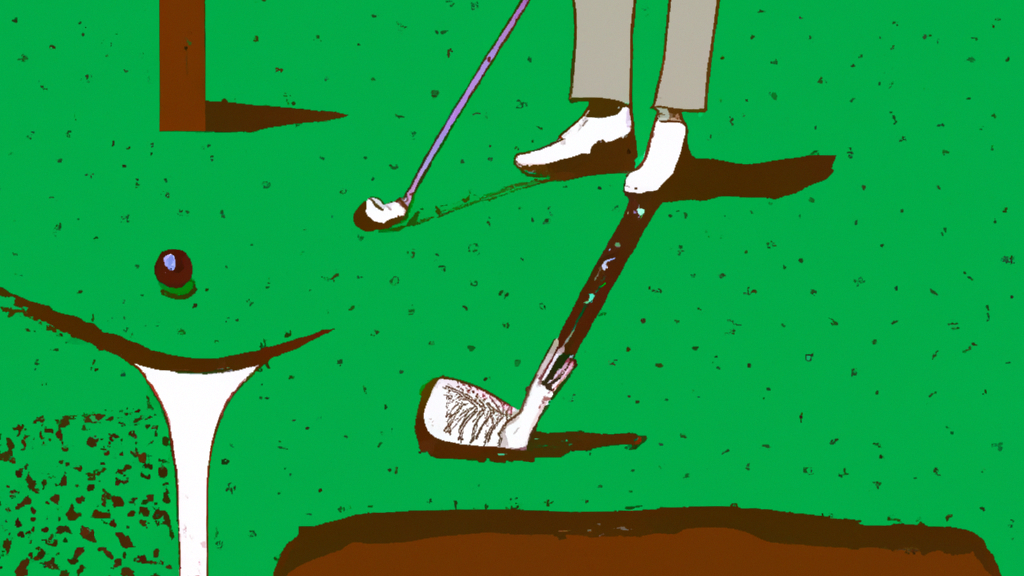THE ROLE OF EMOTIONS IN GOLF: MANAGING ANGER AND FRUSTRATION ON THE COURSE
Golf is a game of precision, patience, and perseverance. It’s a sport that requires a lot of mental focus and emotional control. However, even the most experienced golfers can find themselves struggling with anger and frustration on the course. The role of emotions in golf is often overlooked, but it can have a significant impact on a player’s performance. In this blog post, we will explore the importance of managing anger and frustration on the golf course and how it can affect your game.
We will also provide some tips and strategies to help you stay calm and focused during your rounds. So, whether you’re a seasoned pro or a beginner, read on to learn how to keep your emotions in check and improve your golf game.

THE ROLE OF EMOTIONS IN GOLF: MANAGING ANGER AND FRUSTRATION ON THE COURSE
Golf is a game that requires a lot of mental strength and focus. It is a sport that can be both rewarding and frustrating at the same time. Golfers often experience a range of emotions on the course, from joy and excitement to anger and frustration. Managing these emotions is crucial to playing well and enjoying the game. In this article, we will explore the role of emotions in golf and provide tips on how to manage anger and frustration on the course.
The Importance of Emotions in Golf
Emotions play a significant role in golf. They can affect a golfer’s performance, decision-making, and overall experience on the course. Positive emotions such as joy, excitement, and confidence can enhance a golfer’s performance by increasing focus and motivation. Negative emotions such as anger, frustration, and anxiety can have the opposite effect, leading to poor decision-making, loss of focus, and decreased motivation.
Golfers often experience a range of emotions during a round of golf. The first tee shot can be nerve-wracking, leading to anxiety and fear. A good shot can lead to excitement and confidence, while a bad shot can lead to frustration and anger. The key to managing emotions in golf is to understand how they affect your game and develop strategies to manage them effectively.
Managing Anger and Frustration on the Course
Anger and frustration are common emotions experienced by golfers. They can be triggered by a bad shot, a missed putt, or a slow pace of play. These emotions can be detrimental to a golfer’s performance, leading to poor decision-making, loss of focus, and decreased motivation. Here are some tips on how to manage anger and frustration on the course:
Take a Deep Breath
Taking a deep breath is a simple yet effective way to manage anger and frustration on the course. When you feel yourself getting angry or frustrated, take a deep breath and exhale slowly. This will help you relax and refocus on the task at hand.
Focus on the Present
One of the main causes of anger and frustration in golf is dwelling on past mistakes. Instead of focusing on what went wrong, focus on the present shot. Visualize the shot you want to make and execute it to the best of your ability.
Use Positive Self-Talk
Positive self-talk is a powerful tool for managing emotions in golf. Instead of criticizing yourself for a bad shot, use positive self-talk to encourage yourself. For example, instead of saying “I can’t believe I missed that putt,” say “I’ll make the next one.”
Have Realistic Expectations
Having unrealistic expectations can lead to frustration and disappointment on the course. Understand that golf is a difficult game and that even the best players make mistakes. Set realistic goals for yourself and focus on improving your game.
Take a Break
If you find yourself getting angry or frustrated, take a break. Walk away from the situation and take a few minutes to calm down. This will help you refocus and approach the game with a clear mind.
Practice Mindfulness
Mindfulness is the practice of being present in the moment and aware of your thoughts and emotions. Practicing mindfulness on the course can help you manage your emotions and improve your performance. Focus on your breathing, observe your thoughts and emotions, and let them pass without judgment.
Conclusion
Managing emotions in golf is crucial to playing well and enjoying the game. Anger and frustration are common emotions experienced by golfers, but they can be managed effectively with the right strategies. Taking a deep breath, focusing on the present, using positive self-talk, having realistic expectations, taking a break, and practicing mindfulness are all effective ways to manage emotions on the course. By understanding the role of emotions in golf and developing strategies to manage them, you can improve your performance and enjoy the game to the fullest.

- Control Your Emotions on the Golf Course – GolfPsych
Feb 9, 2018 … You cannot afford the loss of psychic energy to emotions such as anger, frustration, sorrow, excitement, jealousy, elation, pity, fear, or … - How to Cope with Negative Emotions | Sports Psychology for Golfers
In golf, managing emotions is the game within the game. … Follow that up with another bogey and intense frustration and anger may rise to the surface. - HOW TO BE RAGE FREE ON THE GOLF COURSE
Aug 20, 2020 … There are different aspects of emotional control, but we are focusing on that rage, that anger and frustration after an undesired golf shot. - When anger goes too far: 10 rules for avoiding an on-course blowup …
Oct 28, 2021 … I arrived at the course that morning tired and frustrated, … or do the same to yourself, understand anger management as a journey, … - Dealing with the most common mistakes in golf
Apr 7, 2016 … Being able to control your emotions is a big factor in how good you become. … Solutions To Frustration and Anger on the golf course. - Emotional Intelligence reduces Golf scores and Misconduct
Apr 11, 2021 … Control Your ‘Hot Buttons’. angry man rite class Having negative emotions like Anger, Frustration, Blame and Fear, can cause you to act out … - Frustrated Golfer Syndrome: Causes and Cures | Psychology Today
Apr 17, 2009 … The source of the anger so often seen (or heard) on the golf course is simple—rage is a normal human response to helplessness. - Cooling the Golf Mind
Here’s a simple but cutting edge idea for you to manage your temper on the course. So what do we know about anger, frustration and other emotions that might be … - Mental Game Techniques: Anger Management For Golf
Feb 7, 2018 … Do you find yourself getting frustrated and taking one bad shot to the next? Then you probably need some anger management for golf. - 4 Ways to Manage Your Anger and Frustration on the Golf Course …
Replay them over and over in your mind, feeling the good physical and emotional feelings until you are confident once again. Golf is a game, but it is a …
Interesting tidbits about The Role of Emotions in Golf: Managing Anger and Frustration on the Course
- Golf originated in Scotland during the 15th century and was initially played with a stick and ball.
- The first golf club in America was established in Charleston, South Carolina, in 1786.
- The Masters Tournament, one of the four major championships in professional golf, has been held annually at Augusta National Golf Club since 1934.
- Tiger Woods is considered one of the greatest golfers of all time and has won a total of 82 PGA Tour events throughout his career.
- In addition to physical skill, mental toughness is crucial for success on the golf course as players must manage their emotions and stay focused under pressure.
- Many country clubs offer amenities beyond just golfing such as tennis courts, swimming pools, fine dining restaurants and social events for members to enjoy year-round.
- Caddies have been an integral part of professional golf since its inception but are now less common due to advancements in technology such as GPS devices that provide distance measurements on courses





